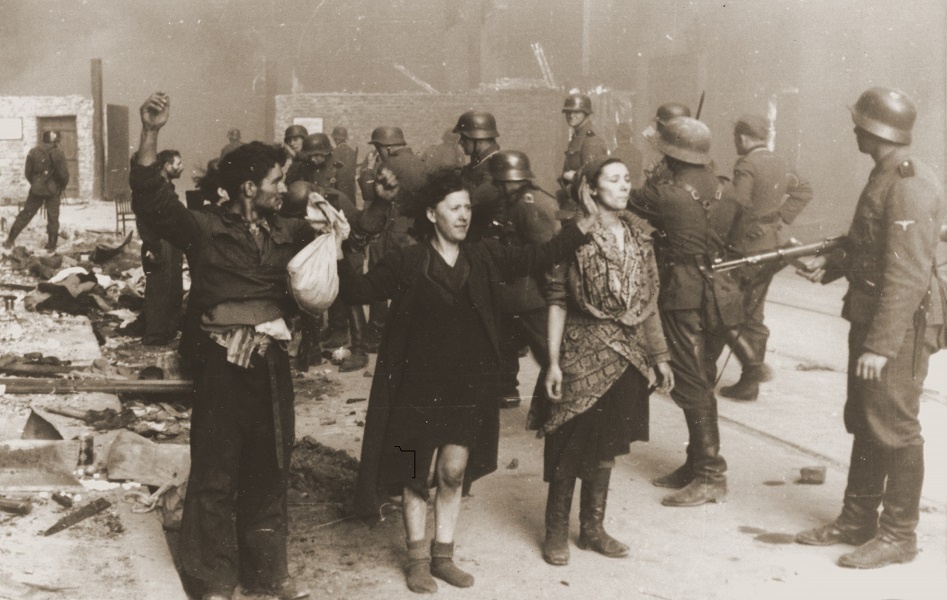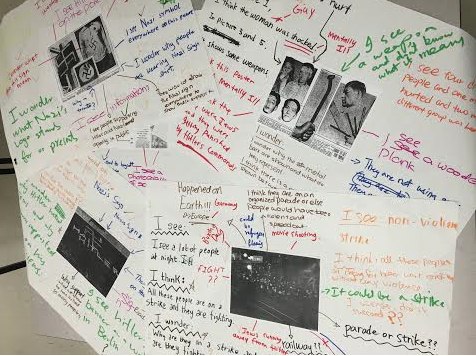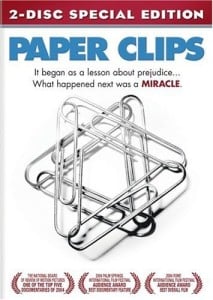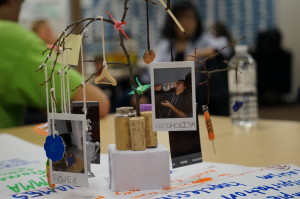In 2015, the House of Commons designated April as Genocide Remembrance, Condemnation, and Prevention Month and committed to “[honouring] the memory of the victims of genocide and reflect on the root causes of these tragedies, so that they never happen again.”
Resources for Genocide Awareness Month and Beyond
Posted by Facing History and Ourselves Canada on March 30, 2022
Topics: Armenian Genocide, Facing History Resources, Genocide/Collective Violence, Teaching Resources, genocide, Genocide and Crimes Against Humanities Course, Inside a Genocide Classroom
This blog by Ontario educator, Michael Anthony, explores his journey learning and teaching about The Holodomor as part of the Genocide and Crimes Against Humanity course and provides helpful resources to integrate into your classroom.
Topics: Genocide/Collective Violence, Teaching Resources, genocide, Genocide and Crimes Against Humanities Course
Creating Meaningful Responses to Memoir and Engaging in Reciprocity
Posted by Alysha Groff on June 21, 2019
This spring, Facing History and Ourselves, in partnership with the Azrieli Foundation Holocaust Survivors Memoir Program, invited 175 students from 6 schools to layer onto their learning about the history and legacies of the Holocaust, or of Canada's Residential Schools by reading Survivor memoir. Students read Theodore Fontaine’s Memoir Broken Circle: The Dark Legacy of Indian Residential Schools, or excerpts of Nate Leipciger’s Memoir The Weight of Freedom, then created pieces that reflected their understanding and responses to these testimonies, which were gifted to each Survivor.
Topics: Toronto, Holocaust, Memoir, Facing History and Ourselves, Survivor Testimony, Canada, Residential Schools, Canadian History, Student Work, project, genocide, Holocaust and Human Behaviour, reflection, Connected Learning, Grade 10 History, HSB, CHC, difficult conversations, trc, stolen lives, facing history pedagogy, Azrieli Foundation Memoirs, Decolonizing Schools, Holocaust History in Canada, Facing Canada, cross curricular teaching and learning, collaborative inquiry
A collaboration between Facing History and Ourselves and the Azrieli Foundation's Holocaust Survivor Memoirs Program, first posted on Azrieli Memoirs' Blog page.
Words referencing mass atrocities of the past, such as fascist, racist, Nazi, genocide and Holocaust, carry deep historical meaning, yet these words are often misused in reference to contemporary events. Using these words too casually not only diminishes the meaning of the words themselves, but also diminishes the events that the words represent. In this blog post, we look to remember the meaning of the term genocide and the conditions that drove a lawyer named Raphael Lemkin to coin this term to describe a horrific crime — a crime that prior to 1944 lacked a name and legal repercussions.
Topics: Survivor Testimony, genocide, Genocide and Crimes Against Humanities Course, Holocaust and Human Behaviour, Grade 10 History, Azrieli Foundation Memoirs
Remember the Holocaust Today, and Everyday
Posted by Facing History and Ourselves Canada on January 26, 2017
On International Holocaust Remembrance Day, and indeed everyday, it is important to remind ourselves of how important it is that we learn about the Holocaust and hear the stories of Holocaust survivors.
Topics: Holocaust, Holocaust and Human Behavior, Canada, Holocaust Education, genocide
During the March Break of 2016, a group of 31 students from three Toronto District School Board schools travelled to Germany, Czech Republic and Poland to learn about the history of Jewish life in Europe, and the Holocaust.
Helping students view Prejudice and Discrimination as a Universal Problem
Posted by Kristen Drury on May 12, 2016
Throughout my years of teaching I began to realize something that Facing History and Ourselves so adeptly addresses- that we tend to see ourselves as “us” vs. “them.” I think that’s one of the hardest issues I’ve come across in teaching WWII, as so many students see what happened as a problem solely with Germany. “They” were racist. That could never happen “here!” It’s “their” problem. But what I really wanted to address in my classroom is that the roots of anti-Semitism and racism that led to the Holocaust were not just found in Germany!
Topics: Antisemitism, Choosing to Participate, History, Canada, Canadian History, genocide, big paper
As a middle school educator, I often find myself in the position of being unable to explore really rich resources with my class due to mature content. Several years ago I purchased 5 sets of the graphic novel MAUS, hoping to one day use it as an option for book talks.
Topics: Books, Antisemitism, Choosing to Participate, Facing History Resources, Holocaust, History, Canada, Holocaust Education, current events, Middle School, genocide, Lesson Ideas, Holocaust and Human Behaviour
Youth and Teachers Respond Collectively to Art Spiegelman's Maus Through Art and Inquiry: An Interview with Professor Rob Simon and Delta Senior Alternative School Teacher Sarah Evis
Posted by Rob Simon on December 21, 2015
In 2015, Dr. Rob Simon, Associate Professor at the Ontario Institute for Studies in Education of the University of Toronto (OISE), and students from his teacher education course partnered with Sarah Evis, a teacher from Delta Senior Alternative School in the Toronto District School Board (TDSB), and her grade 8 students, to study Art Spiegelman’s popular intergenerational Holocaust survivor memoir and graphic novel, Maus: A Survivor’s Tale.
Topics: Art, Books, Antisemitism, Choosing to Participate, Holocaust, Facing History and Ourselves, Innovative Classrooms, Holocaust Education, Middle School, Strategies, Culturally Responsive and Relevant Pedagogy, Night, genocide, Lesson Ideas, big paper, Inside a Genocide Classroom, Social Justice, Personal history
Stolen Lives: The Indigenous Peoples of Canada and the Indian Residential Schools.
Posted by Leora Schaefer on November 26, 2015
On November 26, we released Stolen Lives: The Indigenous Peoples of Canada and the Indian Residential Schools. This new resource brings educators new primary sources and first-person accounts about a painful period in Canadian history, when about 150,000 Indigenous children were forcibly taken from their families and stripped of their language, culture, and traditions.
Topics: Human Rights, Facing History Resources, Identity, Facing History and Ourselves, History, Canada, Racism, current events, We and They, Culturally Responsive and Relevant Pedagogy, genocide, legacy, In the news, English Classroom, Social Justice


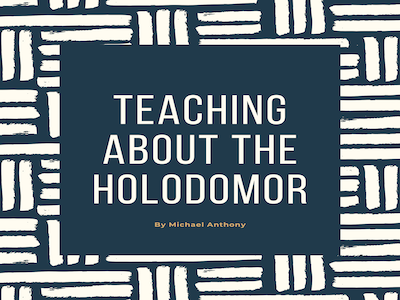
.jpeg)
